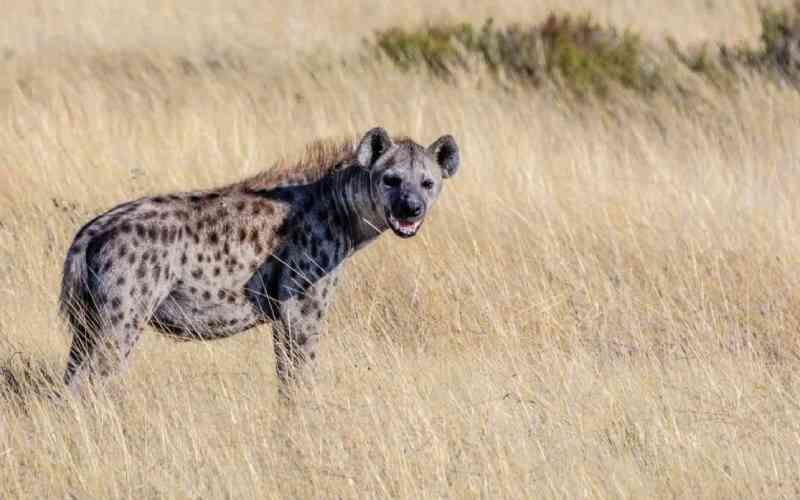
In January, Kenyans were tickled after Kenya Wildlife Service advised Kenyans to, among other things, talk to hyenas in case they came across the carnivores. The advice followed several incidents where hyenas had mauled several people in Juja, Kiambu County.
After enumerating the role of hyenas in cleaning the environment, KWS went ahead to list several precautions in case you come face to face with a hyena.
"Try not to show your fear, keep yourself calm by talking to it," KWS advised.
But following further hyena attacks around Ongata Rongai, talking to these animals might not yield the desired effects. Last week, a communique from KWS stated these hyenas are infected with rabies, a disease deadly to humans.
In both Juja and Ongata Rongai cases, KWS began an operation to round up the menacing animals and bring them back to the park. Some of the captured animals might likely find their way either into the Animal Orphanage or Nairobi Safari Walk where they can be observed around the clock. And this is where your help is needed.
Did you know that you can adopt a hyena? Just like children in an orphanage, animals are rescued from the wild when their mothers die or are in danger from poachers or other predators. And just like the way a person adopts a child in an orphanage by taking care of their expenses, you can do the same for these animals.
According to Peter Njoroge, a senior warden in charge of resource mobilization at KWS, the animals in the orphanage and Safari Walk serve to educate our children and others who may not afford a game drive on conservation.
But the animals are expensive to maintain and adoption will allow Kenyans to show their love for them.
"Animal adoption supports conservation efforts through donations. The carnivores in the orphanage or Safari Walk consume large quantities of meat that strains our budget. I would urge Kenyans to adopt the hyena which is the least adopted animal," says Njoroge.
The lion, adds Njoroge, has the most expensive lifestyle here. Though he does not have the official figures at the moment, he says a lion can consume 20 kilos of beef a day. And not just any beef.
"We source quality beef from the Kenya Meat Commission. We would not want to procure the meat from any other sources due to hygienic considerations. You can imagine the amount of meat needed for just five lions let alone other animals such as cheetahs, hyenas, and leopards that we have here," he says.
Njoroge says the service is in the process of revamping the website that will have specific details on how to adopt an animal. There will also be posters within the compound that will convey the same information to visitors.
"If you want to adopt an animal, we will give you profiles of eligible animals like their age, amount of food needed in a day, and schedule of veterinary visits. Out of that information, you can choose to give the full amount or part of it. We will also give you a certificate of adoption," says Njoroge.
But take note: you cannot take the animal home, however small, but just like in a children's orphanage, you can periodically visit the animal at KWS. At the very least, you get to spend time with your adopted animal, and if it is a hyena, you can talk to it and perhaps enjoy a 'laugh' at close range.
 The Standard Group Plc is a multi-media organization with investments in media
platforms spanning newspaper print
operations, television, radio broadcasting, digital and online services. The
Standard Group is recognized as a
leading multi-media house in Kenya with a key influence in matters of national and
international interest.
The Standard Group Plc is a multi-media organization with investments in media
platforms spanning newspaper print
operations, television, radio broadcasting, digital and online services. The
Standard Group is recognized as a
leading multi-media house in Kenya with a key influence in matters of national and
international interest.
